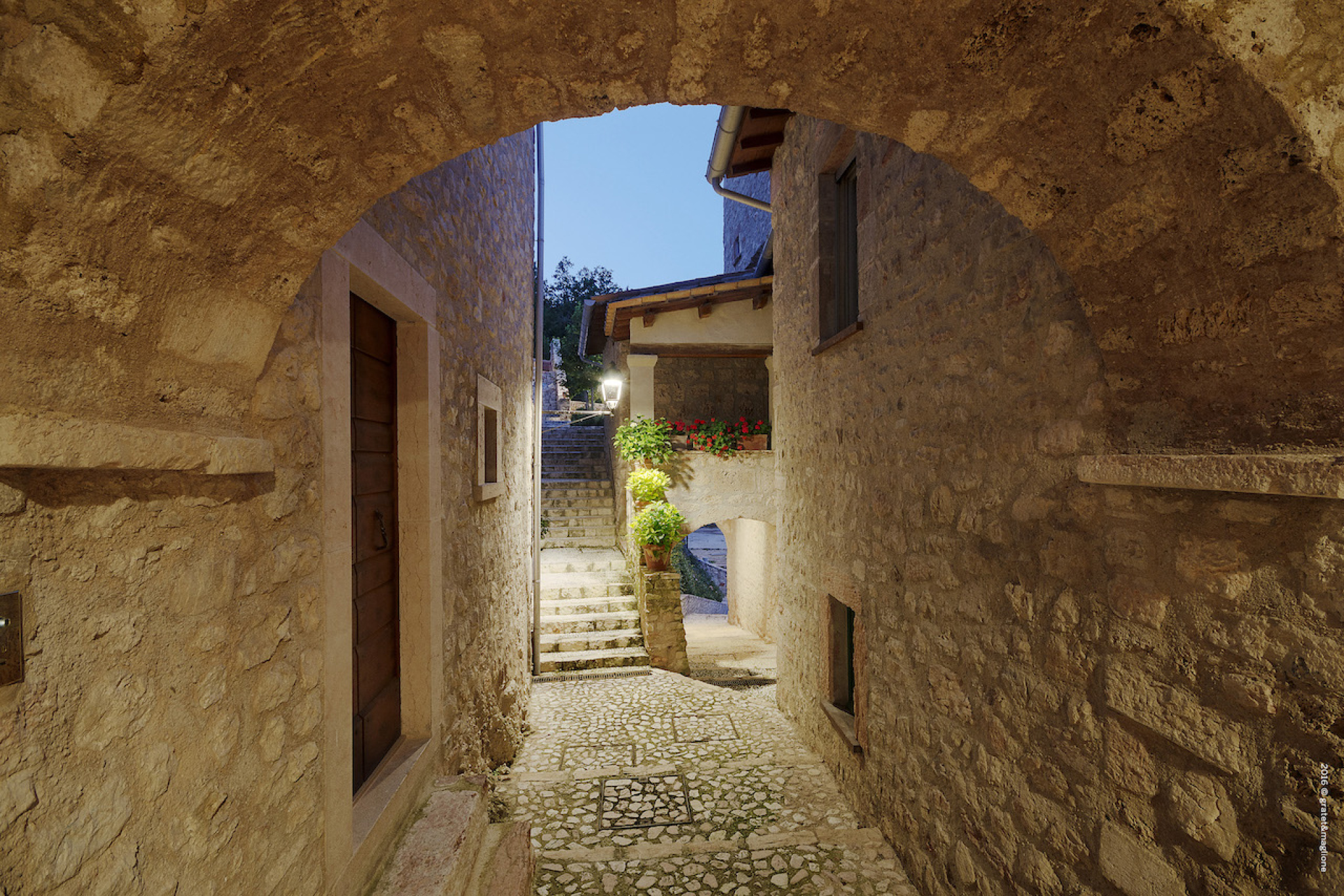




The project to restore the village began in 1994, after photographer and architect Norman Carver author of the book Borghi Collinari Italiani (Italian Hillside Villages) called Postignano Castle in 1979 the archetype of Italian villages. Positioned at a strategic point in the Vigi Valley, exactly at the crossroads between Spoleto, Norcia, Foligno and Assisi, the village was built in the 9th century as a Castrum or control post, which is why it has an observation tower at its highest point and is known as the Castle of Postignano. In the 1600s it was an important center of iron and hemp processing and trade in Umbria, which led the village to have a long period of economic stability. Over the next few centuries the population went from 265 to only 8 families who finally abandoned their homes in 1963 because of the danger of collapse. Although the village was now uninhabited, the photo of Postignano published by Norman Carver in 1979 rekindled interest in Italian villages and the importance of enhancing their history. In 1994, all the Borgo's land and buildings were acquired for a total of 250 deeds, giving rise to a restoration project, interrupted in 1997 due to the earthquake, which made it possible for the entire borgo to shine again, building after building, in 2014, becoming one of Italy's most beautiful villages and a heritage site of national interest. The meticulous renovation project had the ambitious task of reconciling maximum earthquake safety with respect for and enhancement of the historical-architectural features of the entire hamlet. The materials used are typical of the local tradition and produced with traditional methods, such as: terracotta floors made with handmade tiles fired in wood-burning ovens, salvaged tiles, the restoration of old oak gates and the recovery of stone paving stones of the street pavements. Medieval paintings were found during the restoration of frescoes from the 1600s. Today, Castello di Postignano is a village that has come back to life thanks to the events, conferences and concerts organized every year inside the deconsecrated Church of SS. Annunziata and where its houses have been transformed into a large widespread hotel frequented by guests from all over the world


The village of Postignano was founded in the 9th century by inhabitants who were mainly farmers and artisans. In the 17th century, it became an important commercial hub, a center of hemp and iron production, and a crossroads between Spoleto, Norcia, Foligno and Assisi. Castello di Postignano fell into neglect over the following centuries, until recovery began in 1994 with the purchase of all buildings and land. Work was interrupted in 1997 due to the earthquake, finally resuming in 2007 with the addition of a landscape and architectural constraint requested by the property and issued by the Ministry of Cultural Heritage. Today, Postignano Castle is an extraordinary example of how a complex historical structure can be brought back to life, becoming an international model of heritage conservation combined with the application of modern technologies. Castello di Postignano offers a living experience immersed in beauty and in a community that values the environment, history, culture and human relationships. The hamlet includes private homes, a high-end Relais, a restaurant, a café, and stores selling antiques, crafts and local products. The church, which has been converted into an auditorium, hosts a season of concerts and events, while art galleries, a billiard room, a library, a swimming pool, a spa, and a fitness trail complete the offerings. All these facilities are open to residents and guests of the Relais, making Castello di Postignano a unique place where history, culture and modernity meet harmoniously.
